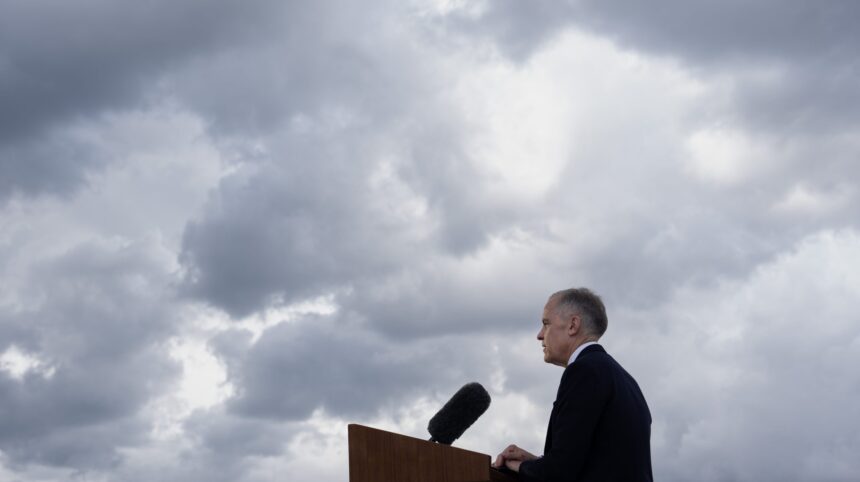In a significant diplomatic development that signals Canada’s proactive approach to US relations, Finance Minister Mark Carney confirmed today that he will engage in additional discussions with former president Donald Trump ahead of the upcoming G7 Summit. Their initial meeting, described by Carney as “productive but preliminary,” laid groundwork for what could become a critical channel between Ottawa and Washington as global economic uncertainties loom.
“We established a foundation for ongoing dialogue,” Carney told reporters outside Parliament Hill this morning. “President Trump and I acknowledged the deep economic integration between our nations requires continued engagement, particularly as we approach the G7 meetings where major economic policies will be shaped.”
The high-stakes discussion, which took place at Trump’s Mar-a-Lago estate last weekend, covered several contentious issues including trade relations, border security, and North American energy policy. Sources familiar with the talks indicate that while significant differences remain, both sides expressed willingness to find common ground on key economic matters.
Canadian business leaders have cautiously welcomed this diplomatic initiative. “These early conversations are essential for protecting Canadian interests,” noted Catherine Swift, former Canadian Federation of Independent Business chair. “With over 75% of our exports heading to the US, maintaining open channels with key American figures isn’t optional—it’s essential.”
The upcoming discussions will likely focus on several thorny issues that have characterized Canada-US relations in recent years. Tariff disputes, Buy American provisions, and disagreements over critical supply chains remain potential flashpoints that could impact Canada’s economy.
Energy policy appears to be emerging as a particular area of mutual interest. “Both sides recognize the importance of North American energy security,” revealed a senior Canadian government official who requested anonymity. “There’s an understanding that cooperation in this sector serves both nations, especially given current global instability.”
Opposition critics have questioned the timing and transparency of these talks. Conservative finance critic Pierre Poilievre characterized the meetings as “eleventh-hour scrambling” rather than strategic relationship building. “This government has spent years alienating our most crucial trading partner, and now they’re rushing to repair damage that could have been avoided,” Poilievre stated during Question Period.
Prime Minister Trudeau defended Carney’s diplomatic outreach as pragmatic governance. “Canada’s economic interests are served by maintaining constructive relationships with key international partners regardless of political differences,” Trudeau noted at a press conference announcing new infrastructure initiatives.
The upcoming G7 Summit, scheduled for June in Halifax, will bring together leaders from the world’s most advanced economies at a time of significant global economic uncertainty. Rising inflation, supply chain disruptions, and the ongoing transition to green energy solutions are expected to dominate the agenda.
As Carney prepares for his follow-up meeting with Trump, scheduled for late May in New York, questions remain about how these discussions might influence Canada’s positions at the G7. Will these bilateral talks strengthen Canada’s hand in multilateral negotiations, or will they constrain our ability to forge independent economic policies in an increasingly complex global landscape?


















